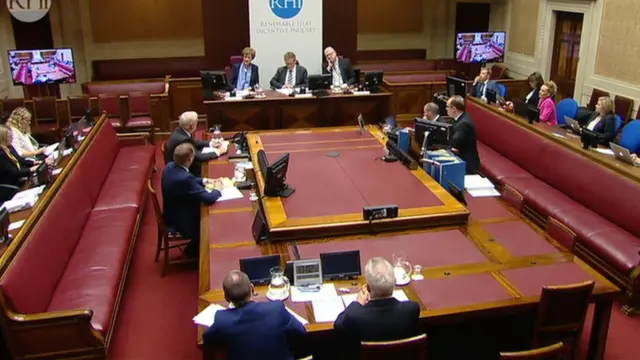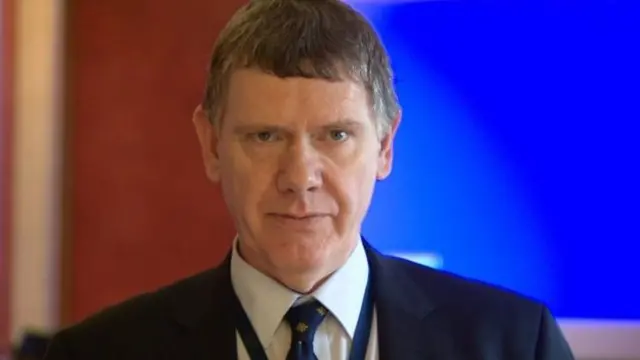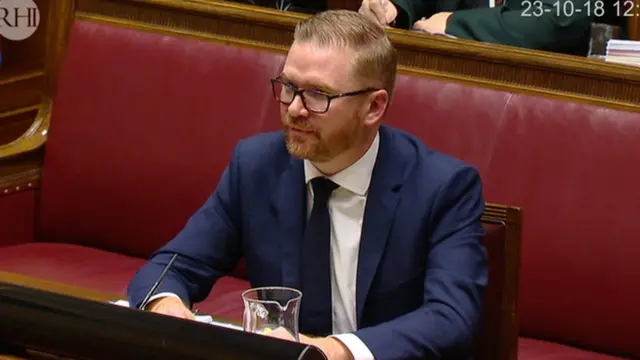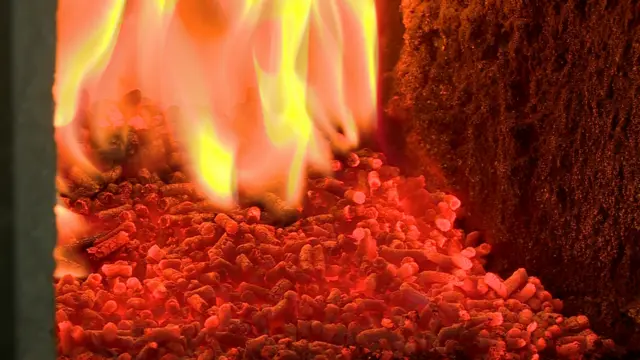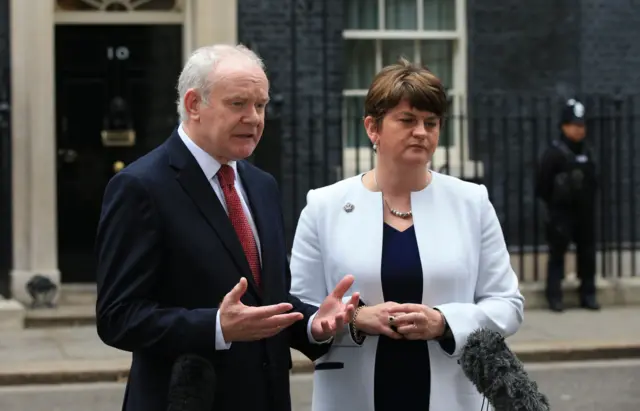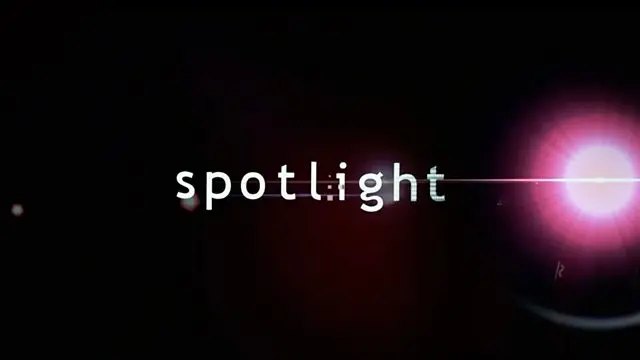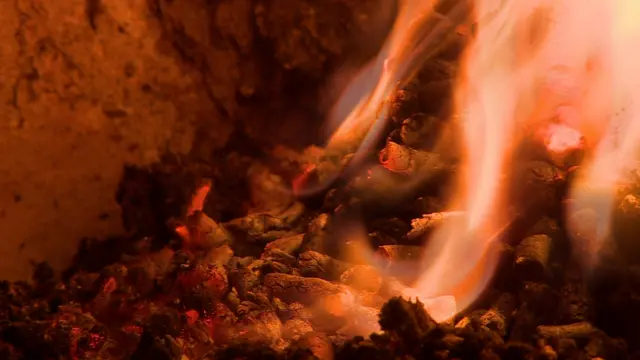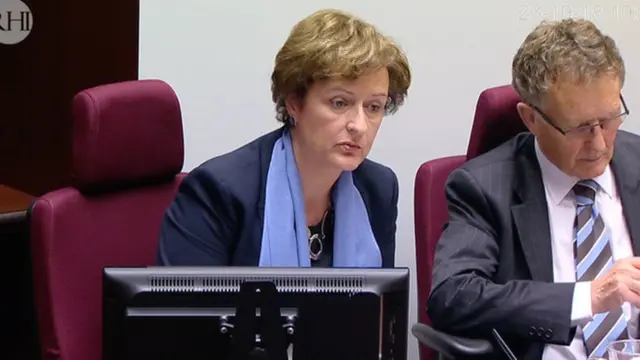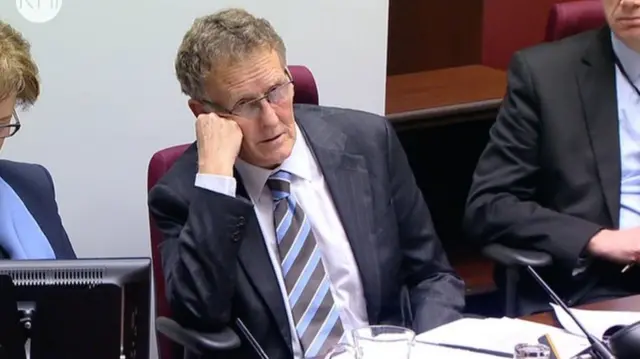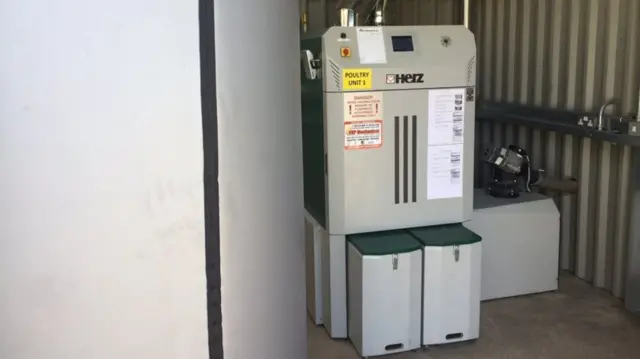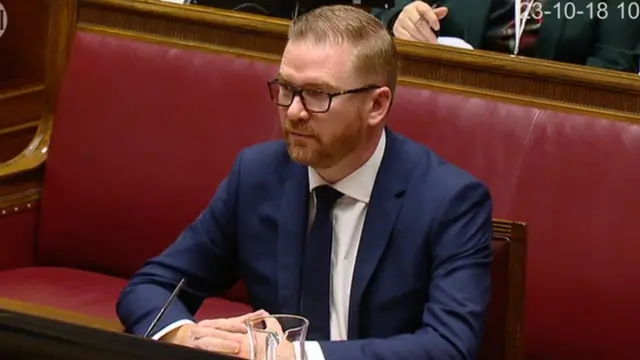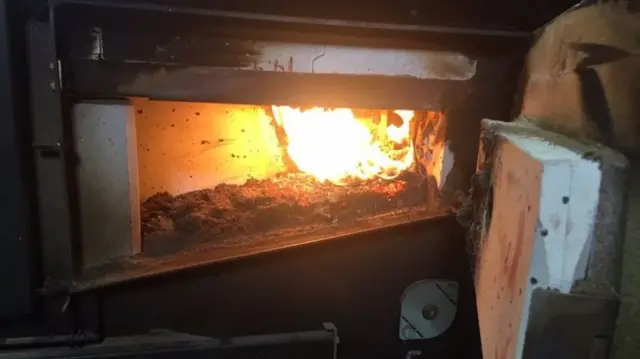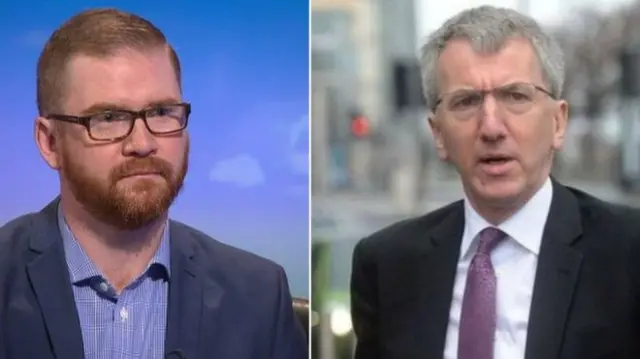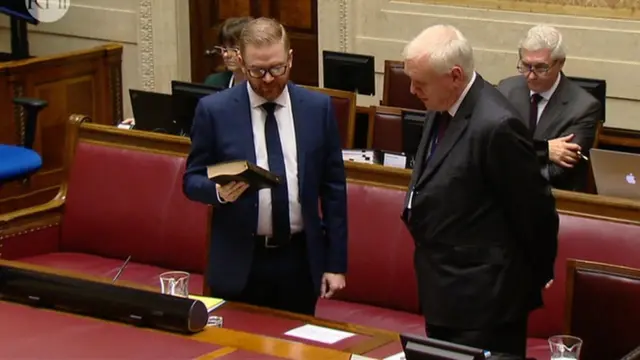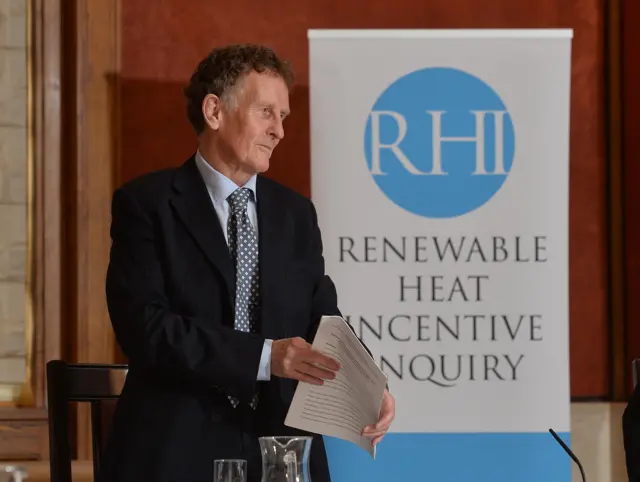'Leaking RHI emails from own department not my proudest moment'published at 13:42 BST 23 October 2018
Simon Hamilton's DUP adviser anonymously sent emails that detailed contact between officials and industry about the RHI scheme in 2015 to their own department's top civil servant and journalists.
John Robinson did that because the emails supported an assertion by fellow DUP adviser Dr Andrew Crawford that he hadn't caused the hugely damaging spike in applications.
Mr Hamilton admits it's "not my proudest moment" and is one of "many things that I regret" doing at the time when the DUP was under huge pressure about the RHI in the winter of 2016-17.
He thought the emails were "pretty explosive" and discussed with his adviser about how it "would be useful if it was in the public domain".
 Image source, Getty Images
Image source, Getty ImagesInquiry panellist Dame Una O'Brien asks: "[You sent it] to your own permanent secretary anonymously? I just want to be sure I heard that properly."
She can't understand the rationale for doing that and asks how Mr Hamilton thought it would improve the situation and how it was consistent with Stormont's ministerial code.
Mr Hamilton admits it's "highly unorthodox" and says it was done in the context that the DUP was being "assailed on all sides - we're getting hit left, right and centre every day" and there wasn't "much to fire back."
Inquiry chair Sir Patrick Coghlin says Mr Hamilton and his adviser had "used the cloak of anonymity" to take pressure off the DUP.
